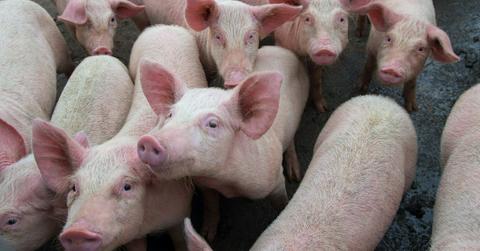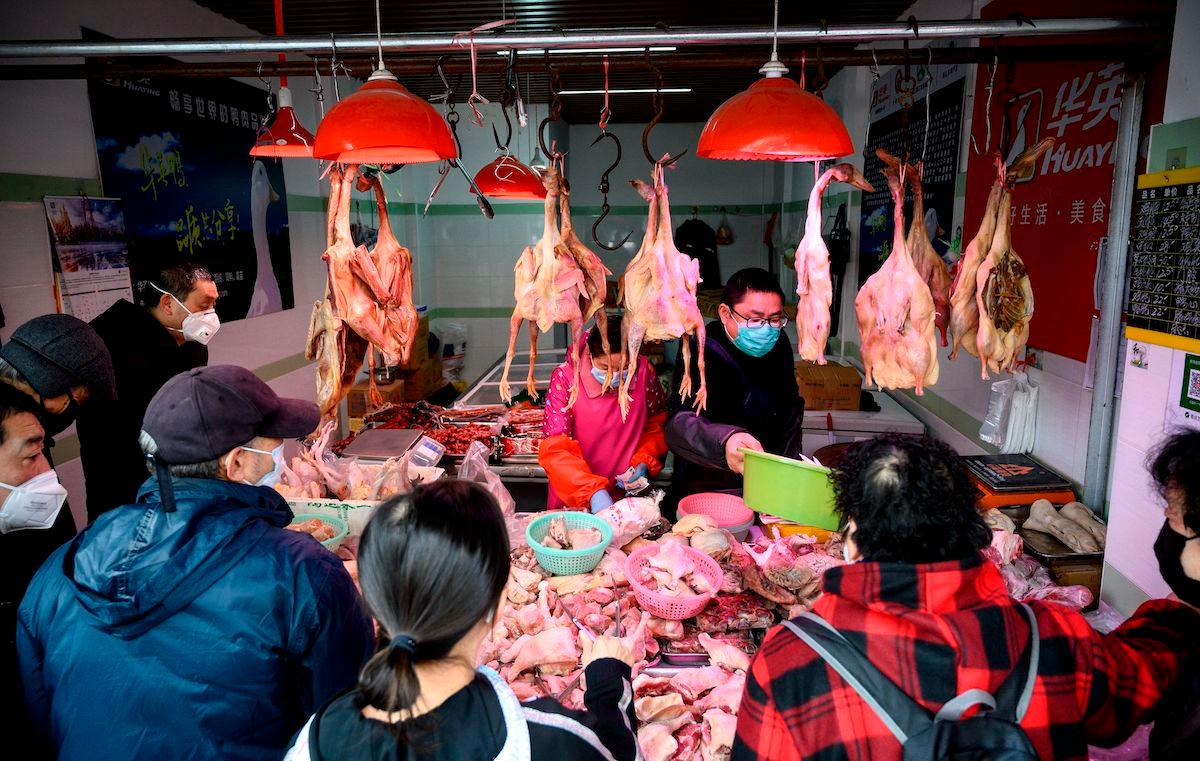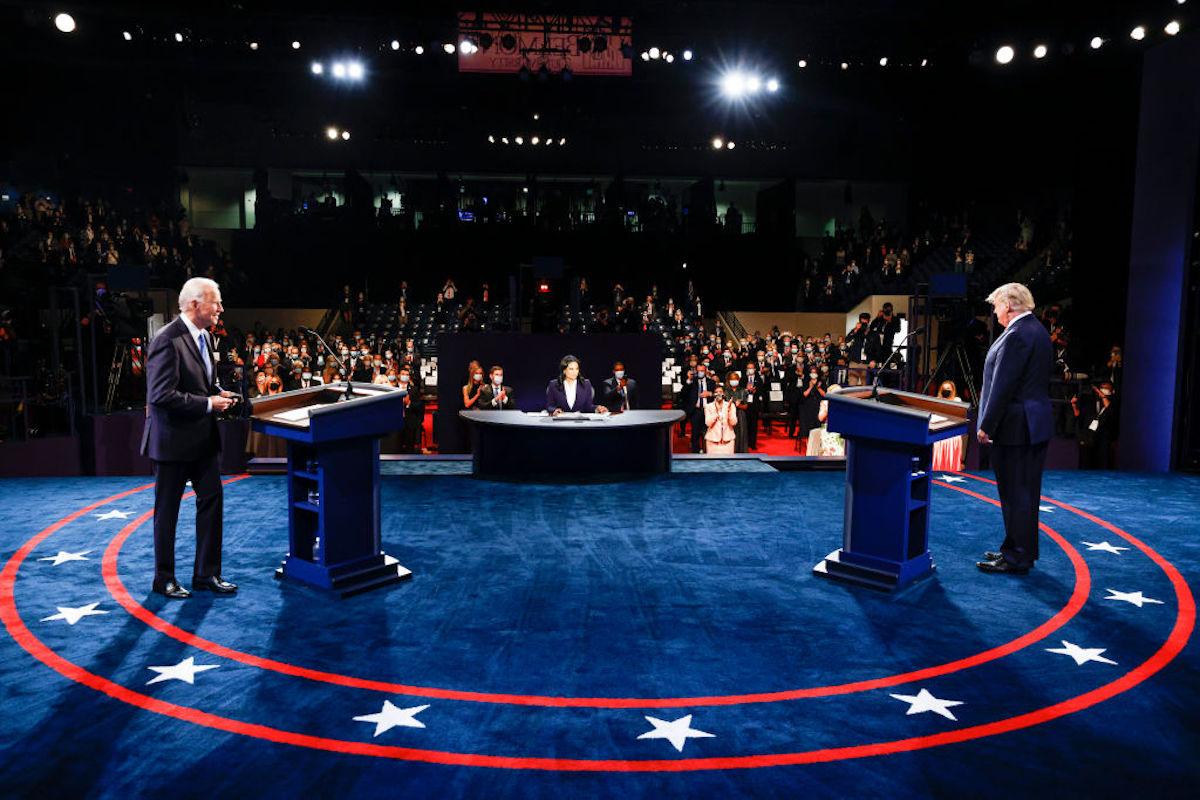Opinion: To Prevent Future Pandemics, We Need to End Animal Agriculture Subsidies
Why hasn’t the pandemic convinced governments to cut back on subsidies for animal agriculture?
Updated Dec. 1 2020, 11:34 a.m. ET

There was a lot of information to take in during the early days (and weeks) (and months) of the coronavirus pandemic — including the fact that COVID-19 is a zoonotic disease, and reportedly the result of animal farming. When I learned this, I thought (hoped) it would inspire people to stop purchasing animal products, at least during the duration of the pandemic. I even wrote that a more vegan world could be one of the pandemic’s positive side effects back in May.
While the coronavirus has inspired some individuals to reconsider their consumption of animals, and even some people to go vegan, I spent a little too much energy wondering why it wasn't inspiring more people to do the same. But then I realized there’s also a more important question that needs to be asked: Why hasn’t the pandemic convinced governments to cut back on subsidies for animal agriculture?
How did COVID-19 start? It’s a zoonotic disease, with animal origins.

Experts agree that it COVID-19 is a zoonotic disease, spread from animals to people. Other zoonotic diseases to become epidemics and pandemics include AIDS, influenza, avian flu, SARS, Ebola, and Zika. In fact, a 2017 study examined those illnesses and asked “what next?”
Specifically, many epidemiologists believe COVID-19 began at a live animal market (aka a “wet market”) in Wuhan, China, where animals are slaughtered openly as customers walk through the space. These theories prompted many experts to demand governments shut these markets down (and many of them have).
There are also theories that the virus began by transferring from a bat to a human, who then spread it at a superspreader event.
Legendary anthropologist Jane Goodall even declared that “one of the lessons learnt from this crisis is that we must change our ways," in an interview with The Guardian. "Scientists warn that to avoid future crises, we must drastically change our diets and move to plant-rich foods. For the sake of the animals, planet, and the health of our children,” she added.
If so many experts believe that significantly minimizing the animal agriculture industry could help prevent future pandemics, why aren’t we listening?
Some surveys have shown an increased interest in veganism during the pandemic.
As reported by Food Manufacture, a Mintel survey of 2,000 British millennials conducted in June found that 25 percent of those surveyed said that the pandemic has made a vegan diet more appealing; additionally, Mintel found that 22 percent of all Londoners found a vegan diet more attractive in June, as compared to 12 percent before the pandemic.
The charity Veganuary conducted a survey in July and August of 10,257 people from the U.S., U.K., Germany, and Latin America who had previously participated in Veganuary, a pledge to eat vegan for the entire month of January (or any set of 31 days). 32 percent of respondents reported eating more vegan food since lockdowns began in March; of the 32 percent, 41 percent attributed their diet change to the connection between animal agriculture and pandemics.
More people going vegan is certainly positive for many reasons, but to actually fast-track us in preventing future pandemics, we need to eat much less animal products. And an even stronger change lies not in the consumer, but in the government.
Why aren’t governments ending animal subsidies during the pandemic?
In many developed nations, government subsidies keep the animal agriculture industry afloat. For instance, in the U.S., the government gives the meat, dairy, and egg industries $38 billion in taxpayer money every year. These subsidies keep animal ag in business, and they also keep the prices of meat, dairy, and eggs affordable to consumers.
There’s been no evidence of these subsidies slowing down during the pandemic, at least in the U.S. Reducing these subsidies could help prevent future pandemics, as well as reduce greenhouse gas emissions, pollution, animal suffering, and human illness.
In an ideal world, the government would respond to the pandemic by reducing subsidies to animal farmers, increasing subsidies for regenerative plant farming, and, in order to make sure farmers and slaughterhouse workers do not lose their jobs, offering financial incentives to companies who transition from animal farming to regenerative plant agriculture.
Is Trump likely to help prevent future pandemics by reducing animal agriculture subsidies?

Donald Trump is unlikely to support transitions from animal farming to plant farming, considering the fact that he kept slaughterhouses open as essential businesses throughout the pandemic, despite the high risk of COVID-19 transmission in these facilities that put workers in close proximity to each other, to animals, and to their blood, feces, and bacteria. Reports of massive COVID-19 outbreaks at some of the country’s largest slaughterhouses forced some of them to temporarily close, but not before infecting and killing some workers.
Many slaughterhouse employees are people who are unable to get other jobs, including undocumented immigrants and refugees. 51.5 percent of frontline slaughterhouse workers are immigrants, and they often do not get the workplace protections they deserve, according to the Center for Economic and Policy Research.
Even before COVID-19, Trump has made other changes to employee protections at slaughterhouses during his time in office. For example, he increased line speeds at chicken slaughterhouses, putting workers at an increased risk of injury, according to the Union of Concerned Scientists.
There’s also the fact that Trump has arguably failed the U.S. in his response to the pandemic. The notorious anti-masker currently leads a nation that’s had nearly 10 million COVID-19 cases and more than 239,000 deaths from the virus — the highest amounts of any country on Earth.
Would Biden end animal agriculture subsidies?
Should Joe Biden take office in January, there’s a chance the subsidy system will change, at least a little bit, based on his record of supporting legislation to prevent animal cruelty, according to Tenderly. For instance, Biden previously voted yes for an amendment to a bill that would have prevented new or expanding factory farms from receiving specific subsidies.
Additionally, Sen. Cory Booker has a bill called the Farm System Reform Act (FSRA), which aims to prevent new large-scale factory farms from opening in the U.S., hold the industry accountable for the pollution it creates, and more, as reported by VegNews. Sen. Elizabeth Warren and Rep. Ro Khanna are both co-sponsors of the bill. Based on Biden’s record of supporting pro-animal legislation, it wouldn’t be a surprise if he supported this bill, should he win the presidential election.
Biden also has a goal of achieving a 100 percent clean energy economy with net-zero emissions by 2050 in the U.S. — and shifting agricultural subsidies away from animal ag and towards regenerative farming could make a huge difference in achieving this goal.
What can we do to prevent future pandemics?
In addition to taking action to prevent the spread of COVID-19 (such as social distancing, wearing masks, etc.), we as individuals can do a few things.
Adopting plant-based diets is hugely important in the journey to end the factory farming system. When more people eat vegan, that contributes to the supply and demand of the food industry. Going vegan is one of the most impactful things we as individuals can do to reduce our environmental impacts, according to a 2018 University of Oxford study.
However, if the government continues to subsidize factory farms, a reduction in demand won’t impact the industry’s supply enough to end factory farming. If the U.S. government truly cared about preventing future pandemics, it would move quickly on legislation to transfer subsidies away from animal ag, and on other legislation to protect Americans.
The 2020 presidential election winner will set the tone for the next four years. Whether Biden makes it to office or Trump remains in power, we as Americans need to make sure to hold our president accountable for shifting the U.S. away from factory farms to prevent future pandemics, achieve climate goals, and so much more.